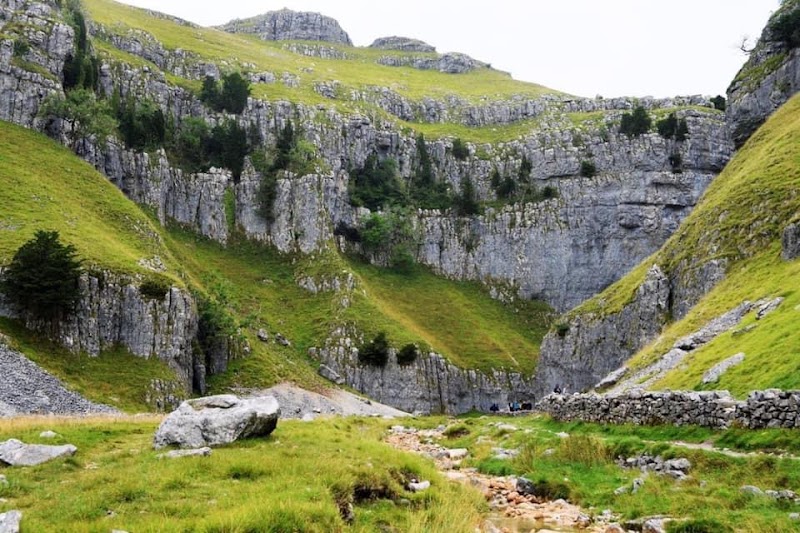
Taking on the Ilkley Trail Marathon: A West Yorkshire Adventure
The Ilkley Trail Marathon navigates 26.2 miles of West Yorkshire’s varied landscapes, blending steep moorland climbs with forested paths and river valley views. A challenging yet accessible adventure, it offers practical appeal for hikers seeking both natural beauty and a sturdy physical test.
Start Early to Avoid Late Afternoon Weather Shifts
Begin your hike or run before sunrise or early morning to take advantage of cooler temperatures and stable weather conditions common in West Yorkshire.
Wear Footwear with Good Traction
The trail includes muddy patches and loose gravel, especially near moorland sections; solid grip will reduce injury risk and improve pace.
Carry Sufficient Hydration
Bring at least two liters of water and energy snacks, because natural water sources along the trail may be risky to drink unfiltered.
Use Layered Clothing
Weather on the moor can turn quickly. Dress in layers and pack waterproof gear to stay comfortable through sudden changes.
Taking on the Ilkley Trail Marathon: A West Yorkshire Adventure
Stretching 26.2 miles across the varied terrain of West Yorkshire, the Ilkley Trail Marathon offers a demanding but rewarding route for hikers and runners alike. Beginning in the quaint market town of Ilkley and winding through the rolling moorlands, thick woodlands, and stone-lined paths, this marathon challenges you with approximately 1,800 feet of elevation gain. Expect underfoot a mix of well-trodden trails, gravel sections, and occasional muddy patches where the earth presses back.
The trail moves fiercely with the landscape—streams dare you to cross as they curve and rush, while the wind sweeps over the open moors, pushing forward. Early on, the Wharfe Valley unfolds to your left, its wooded slopes holding stories and quiet moments, while the iconic Cow and Calf rocks appear like steadfast sentries signaling the heart of the challenge.
Timing your run or hike is crucial. The best window is late spring through early autumn when daylight stretches and the path is less likely to be slick underfoot. Hydration must be a priority: carry at least two liters of water, and consider quick snacks for energy. Sturdy footwear with good traction is non-negotiable—you’ll want boots or shoes that grip the uneven surface and protect against stones and moisture.
Navigation is straightforward but not to be underestimated; the trail is marked but can blend into the moorland scenery when fog drifts down or light fades early. Early starts let you take advantage of calmer winds and cooler temperatures, while the afternoon rewards with extended views of the Yorkshire Dales. If you hit a rough patch, remember the route respects you as much as you respect it—the climb up Ilkley Moor won’t give in easily, but the views at the summit reward persistence.
Practical preparation includes layering your clothing—weather on the moor can shift quickly from sun to squall. Carry rainproof outer layers and a hat, and if tackling the marathon on your own, a compact first aid kit is wise. For those less experienced, breaking the marathon into sections over several days provides an accessible way to enjoy the landscape without overextending.
The Ilkley Trail Marathon is an engagement with nature that requires your attention, preparation, and respect. The panoramic views at the highest points, the crunch of pine needles beneath your feet, and the river’s persistent voice will make each step worth the effort. It tests endurance, rewards with authenticity, and invites you to move with purpose through one of England’s unforgettable outdoor arenas.
Nearby Trips
All Adventures
Boat Charters
Water Activities
Adventures near Bradford, West Yorkshire
Discover the unique and memorable adventures that make Bradford, West Yorkshire special.
Frequently Asked Questions
Is the Ilkley Trail Marathon suitable for beginners?
While parts of the trail are accessible, completing the entire marathon requires good endurance and preparation due to the distance and elevation. Beginners can attempt sections on day hikes before tackling the full route.
Are there water refill points along the marathon?
Reliable clean water sources are scarce on this route. It’s advised to carry your own supply or have a water filter if sourcing from streams.
What wildlife might I encounter on the trail?
Keep an eye out for red grouse on the moors, roe deer in the woodland edges, and an array of songbirds. The River Wharfe hosts herons and kingfishers darting near the banks.
Can this trail be completed year-round?
Technically yes, but winter presents significant challenges including mud, ice, and cold temperatures. Spring through fall is more practical and safer.
Are dogs allowed on the trail?
Dogs are permitted but should be kept under close control due to livestock grazing and sensitive wildlife habitats.
Where does the trail start and finish?
The marathon begins and ends in Ilkley town center, making it convenient for travelers to find accommodation and refreshment before and after the route.
Recommended Gear
Trail Running or Hiking Boots
Provides necessary grip and ankle support across mixed terrain, from moor paths to forest trails.
Waterproof Jacket
Protects against sudden rain and wind, common on the exposed moors.
Hydration Pack or Bottles
Ensures you carry enough water for 6+ hours without reliable natural sources.
Layered Clothing System
Allows adjustment for temperature swings from valley floor to exposed heights.
Local Insights
Hidden Gems
- "Chapel Hill viewpoint: a lesser-known rise offering panoramic views of the Aire Valley and distant hills."
- "Village of Denton: a quiet hamlet with historic stone buildings, barely touched by trail traffic."
Wildlife
- "Red grouse"
- "Roe deer"
- "Kingfisher"
- "Heron"
- "Moorland butterflies"
History
"Ilkley’s history traces back over centuries as a spa town, and parts of the trail cross ancient packhorse routes and Victorian-era pathways, rooted in the region’s industrial past."
